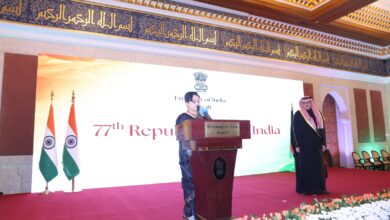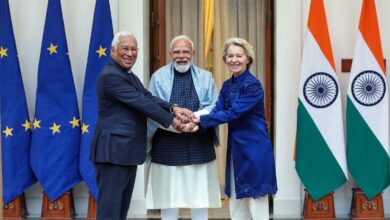KD 255 million laundering ring busted, 19 defendants jailed
The Criminal Court, presided over by Counselor Al-Dhuwaihi Al-Dhuwaihi, handed down prison sentences of three to ten years for a number of citizens and residents, along with fines amounting to approximately KD 675 million.

• The penalties are double the amount laundered in a case involving 29 individuals and nine companies across sectors such as imports, exports, general trade, money exchange, and food delivery.
The Criminal Court, led by Counselor Al-Dhuwaihi Al-Dhuwaihi, on Thursday sentenced 19 defendants—citizens and residents—to prison terms ranging from three to ten years and imposed fines totaling around KD 675 million (approx. $2.5 billion), according to Arabic daily Al Jarida.
The penalties are double the amount laundered in a case involving 29 individuals and nine companies across sectors such as imports, exports, general trade, money exchange, and food delivery.
The court ruled that the group operated as an organized criminal network, laundering money from crimes that harmed national interests. Charges included document forgery, fraud, customs evasion, illegal importation of goods, violations of due diligence protocols, and the possession and sale of banned chewing gum imports.
Millions in fines
The court fined seven defendants KD 510 million (approx. $1.6 billion), double the laundered amount. Three others were fined KD 80,000 (approx. $261,000), and one was fined KD 100,000 (approx. $326,000), each equal to half the value laundered. Involved companies were fined KD 255 million (approx. $832 million), equal to the total value of the criminal assets.
Deportation ordered
The court also ordered the deportation of convicted residents after they serve their sentences, and the confiscation of forged documents, criminal proceeds, and laundered funds.
How was the crime committed?
According to case files, the first and 20th defendants illegally collected cash through an exchange company run by the first defendant. The fifth defendant passed the money to the second, third, fourth, and eighth defendants at two implicated companies. It was then received by several others, including the first, fifth, seventh, 19th, and 21st defendants, and deposited into various company accounts, including those of the first and 16th defendants.
The funds were transferred abroad either via banks—by the first to fourth defendants—or through exchange companies—by the fifth and 16th defendants. The 28th and 29th defendants, as company directors, signed the remittance forms for all transfers.
The 5th, 16th, and 17th defendants assisted others involved in the crime by transporting devices used in the incident to locations specified in the documents, aiming to conceal evidence and help the defendants evade punishment.
Organized crime and economic threat
Case documents show the defendants took possession of illicit funds and used them for foreign transfers to conceal their source, ownership, and related rights.
The court described the crimes as serious and organized, far beyond isolated incidents. It said the defendants’ actions harmed national interests, aimed to destabilize the economy, and weakened trust in financial institutions. Their operations created hidden channels for illegal funds, bypassed oversight, and damaged the national economy by enabling unfair competition and undermining anti-corruption efforts.
The court stated that, while demonstrating the seriousness of these crimes, it also underlined the destructive impact of such criminal organizations on the economic and social development efforts the state is striving to achieve. These organizations throw the economy into turmoil and instability, tarnish Kuwait’s international reputation, and expose the country to the risk of sanctions and international economic repercussions resulting from such illegal activities.
“From this standpoint, the court, in ruling on this case, is aware of the grave national and social responsibility it bears. This requires firmness in confronting such practices, with the aim of protecting society and the national economy, safeguarding the country’s financial security, drying up the sources of organized crime, stopping the flow of illicit funds, and sending a clear and decisive message that the law is above all.
The supreme national interest must be the guiding principle for all economic and commercial activities, affirming the rule of law, enshrining justice, and deterring anyone who dares to tamper with the nation’s capabilities and its economic and national security,” it said.






















